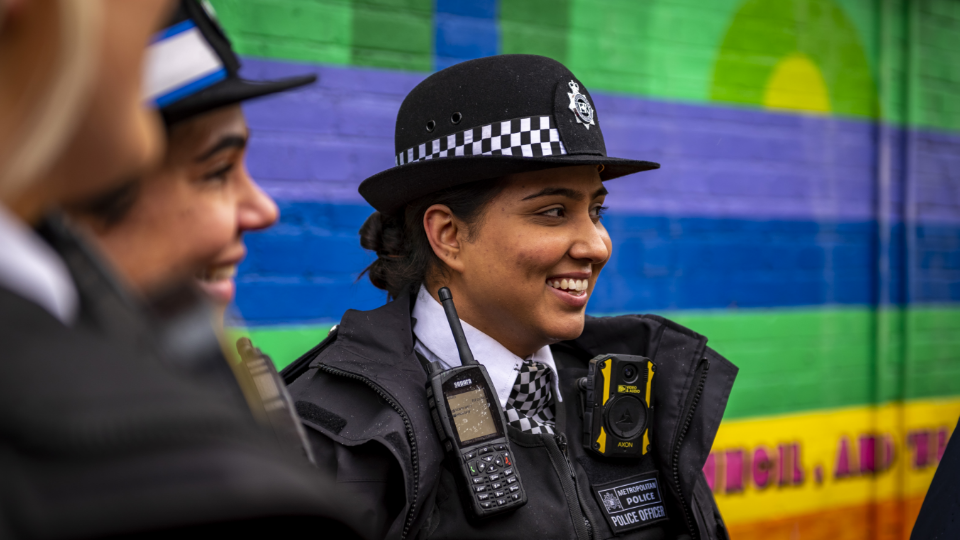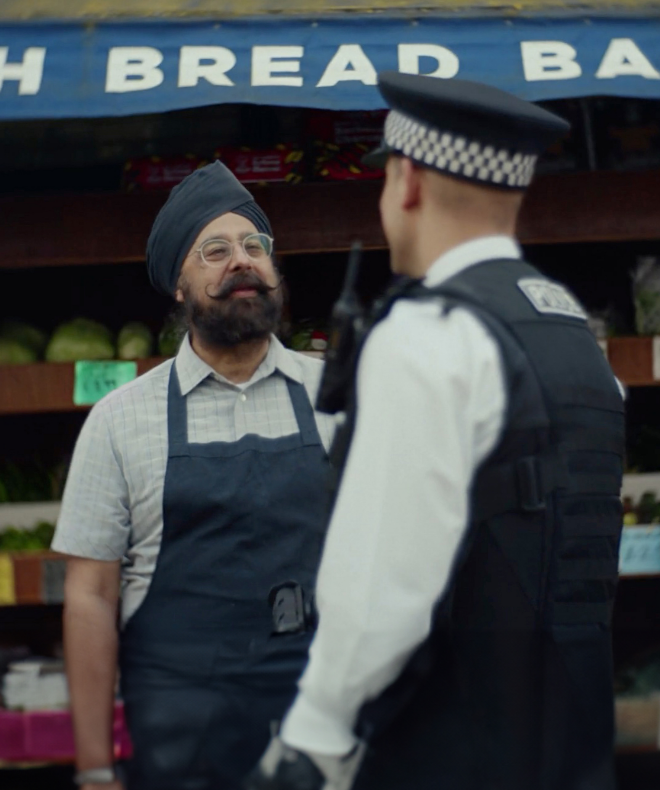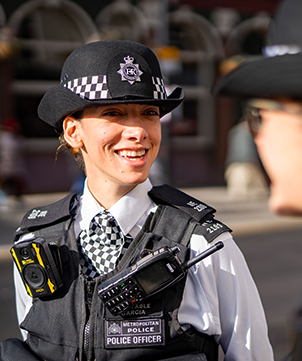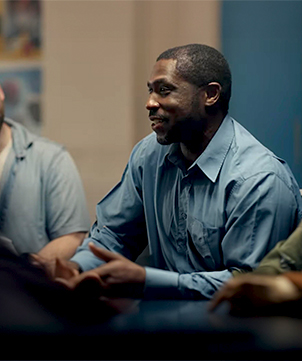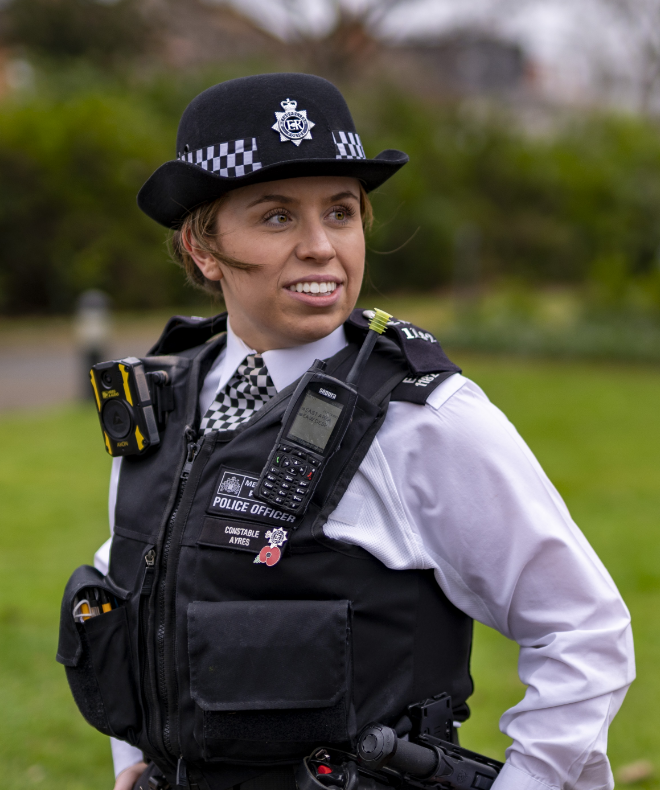Get your fully funded degree and help make London a safe space for all.
Introduction
Our Police Constable Degree Apprenticeship (PCDA) means you can learn as you earn, gaining
a free (BSc) Hons degree in professional policing practice. The Met covers all
qualification fees, so that you can get a degree that is relevant to policing. Already have a degree?
You can still apply for this programme and get another one that furthers your career.
It’s a three-year programme that combines classroom learning with real-world policing experience on London’s streets.
In your final year, you’ll get the chance to write a dissertation on a policing subject of your choosing.
This will give you the unique opportunity to meet people local to the area while opening doors for future career moves.
Frontline experience will be central to this programme as you’ll be on-site at the university for 11 weeks over three years.
These three years will also count as your probation. And on successful completion, you’ll
graduate from both the degree and the probation.
What’s it like day to day?
Being a police constable means that no two days will ever be the same.
But you’ll approach each day with the same goal – making the city a safer space for all.
Policing is not all blue lights and fast cars. You’ll be working closely with the communities
you serve, protecting them from crime. And you’ll do it while pursuing your degree at the same time.
In the course of a week, you might:
- Respond to 999 calls for emergencies like robberies, traffic accidents or public disorder
- Help victims of crime with emotional support and practical information
- Investigate crimes and pursue offenders
- Plan and deploy to longer-term operations addressing problems like organised crime, drugs or gangs
- Work with partners like local councils, NHS trusts, and schools to prevent crime and make communities safer – participating in community events and joint operations
- Visit schools to share crime prevention information with young people
- Deliver justice for victims of crime by building a case file and presenting evidence in court.
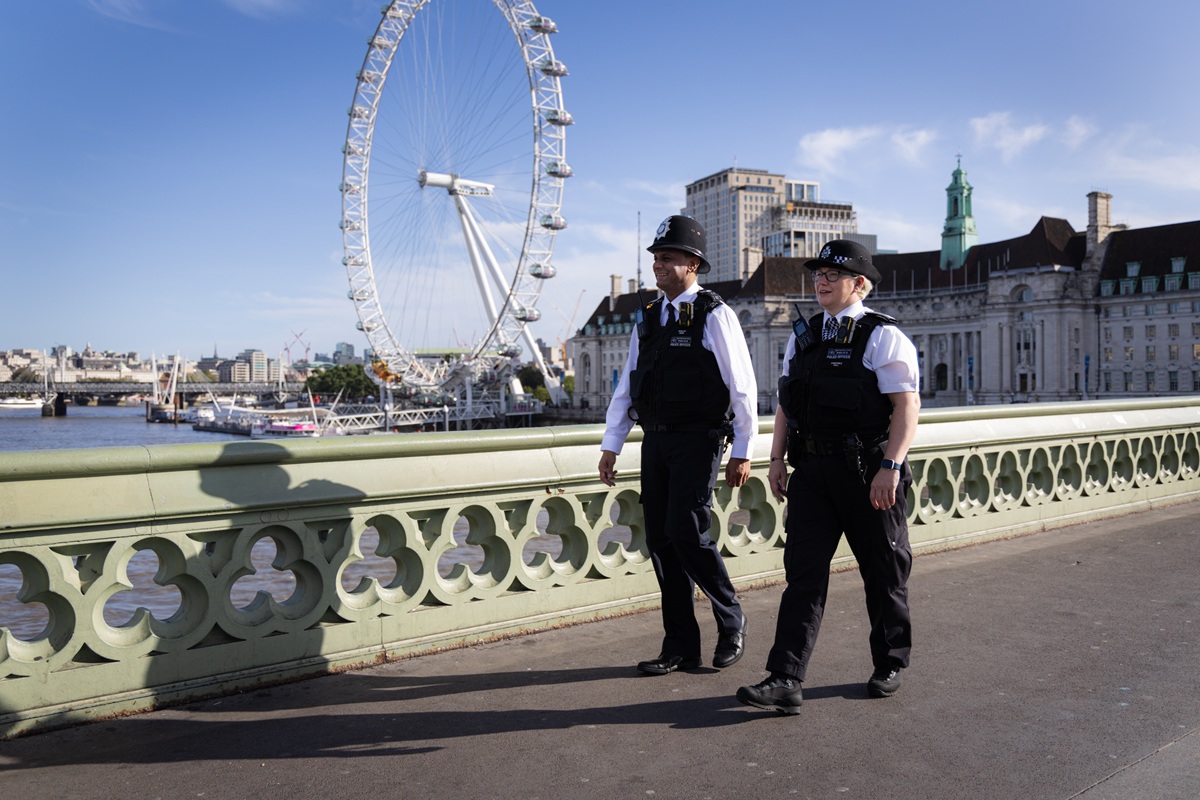
Who we are looking for
London is one of the most diverse cities in the world. That’s why in the Met we welcome applications
from people from all backgrounds who are committed to making a difference for the communities we serve.
The Met is working hard to restore Londoners’ trust and confidence. We aim to drive more trust, reduce
crime, and maintain high standards. You can join the thousands of dedicated, honest, committed, and
hard-working officers and staff in our team.
We are looking for people who share our values of integrity, courage, accountability, respect and empathy.
And those who share our high standards of behaviour.
Change is happening within the Met. Whilst that takes time, we want people like you to join and help to make a big difference.
Policing is a 24-hour job, and that means once you join, you’ll need to work shifts, including through the night and at weekends.
In addition to the above, you’ll also need to meet our standard eligibility criteria:
-
You must have – or be working towards one – 2 A-Levels or a Level 3 qualification. Training or work experience equivalent to a Level 3 qualification is also acceptable.
You also must have a Level 2 in English at either a GCSE Grade C or above or Grades 4 to 9.
We will also consider an English Language equivalent overseas qualification.
-
You must be 18 or older to join us, but you can apply when you are 17.
Typically, the upper age limit is 57.
-
You need to tell us about other jobs or business interests you want to keep up after you join us, so we can check that these do not conflict with working for the Met. This is all part of maintaining our high standards.
-
Policing isn’t easy. Whilst you don’t need to be an Olympic athlete to join, you do need to be relatively fit and healthy to cope with the demands of the job.
You will need to pass a fitness test. It’s called the ‘bleep test’. You will be required to run up and down a 15-metre track, beating a ‘bleep’. At the end of each level the time between bleeps gets shorter, meaning you have to run faster. The whole test takes three minutes and 35 seconds and covers a total of 525 metres.
Start preparing now by watching our YouTube video for tips and downloading the Met’s six-week training programme. If you fail on your first attempt, don’t worry you can try twice more. Find out more on the College of Policing website.
-
Some medical conditions can prevent you from being able to cope with the physical and mental demands of the job. HM government medical standards information gives full details on illnesses, injuries and disorders that will affect your ability to work as a police officer.
-
You must meet the police eyesight standards. These are the same no matter which force you join. Your eyesight is tested as part of your medical, which takes place during the application process.
-
If you’re not from the UK, you must be a resident in the UK and have lived here continuously for the last three years. You must also be free from restrictions with indefinite leave to remain.
If you’re from the UK, you must have lived here continuously for the last three years. This doesn’t apply to those serving abroad in the British Armed Forces.
-
You can apply to join more than one police force at once, but you can only start the online assessment in the recruitment process with one force.
-
Everyone joining the Met must be vetted. Vetting checks are an important way to maintain our high standards and reassure Londoners that appropriate checks are done on people who hold a position of trust, such as our officers and staff.
Find out more about the Vetting process.
-
If you’ve got a tattoo, you’ll need to tell us about it when you apply. We’ve got a tattoo policy that you’ll need to meet.
You can’t join with tattoos that are on:
- the sides and front of your neck above the collar line
- your face
You also can’t join with tattoos that are:
- discriminatory
- offensive
- violent
- rude
- lewd
- crude
- racist
- sexist
- sectarian
- homophobic
- intimidating
- political in nature
You can join if you have tattoos on:
- your hands
- the back of your neck
- below your collar line
- your ears
- behind your ears
Sometimes we will require you to cover up your tattoos for policing events such as ceremonial events.
Values

Integrity
I will always try to do the right thing. I will be fair and consistent in everything I do, being mindful of the impact of my actions. I will actively challenge those whose behaviour falls below the public and the Met’s expectations.

Courage
I will show courage by making tough decisions when needed. I will always challenge racist, homophobic, misogynistic and any other discriminatory and inappropriate behaviour. I will show humility.

Accountable
I will strive to build trust with the public, colleagues, and partners, by being open, honest and taking ownership for what I have done and why. I will admit when I make mistakes, learn from them and improve.

Respect
I will respect the rights of everyone I meet. I will listen to individual perspectives and needs. I will try my best to understand a diverse range of views and achieve the best possible outcomes for the public.

Empathy
I will care about communities and colleagues and try to understand their perspectives and experiences at all times. I will be kind and listen and understand without judgment. I will take time to clarify and explain my decisions.
Pay
The starting salary for this role is £42,210, including all allowances. After three years, you’ll graduate
from your degree and the probation, and your salary will go up to £47,475, including allowances.
Over the next five years, your salary can increase each year up to £59,994. Most officers apply to
become a sergeant, the next police rank, after five years as a constable. As a sergeant, you can earn over £63,000.
Benefits
As a police constable, the work you do matters. And to thank you for your service, you’ll be eligible for several benefits, including
- A BSc (Hons) degree in professional policing practice, completely free of cost to you
- Free travel inside London, with heavy discounts from up to 70 miles outside London
- A public sector pension
Policing is a physically demanding job, so it’s important to take care of your health. That’s why you’ll get:
- Access to free physiotherapy
- Free eyesight tests and a range of frames to choose from
- On-site gym facilities in our buildings across London
- Four sport club houses, offering free or low-cost access to sporting facilities to our officers and their families
You’ll also have access to a range of discounts, including:
- Access to our dedicated discount site, offering money off a host of high street shops, grocery shops, days out, and gyms
- Eligibility for the Blue Light Card, which will give you discounts on a variety of things, from restaurants to experiences
Career development and policing specialisms
Completing the training programme opens up a number of career paths and opportunities for you. The Met is the largest police service in the UK, and naturally, offers a wide variety of specialist units and opportunities to progress your career. That includes:
- Ongoing training through courses, mentoring and coaching
- Promotion and development opportunities into different police specialisms
- A focus on your continued professional development through a performance review process

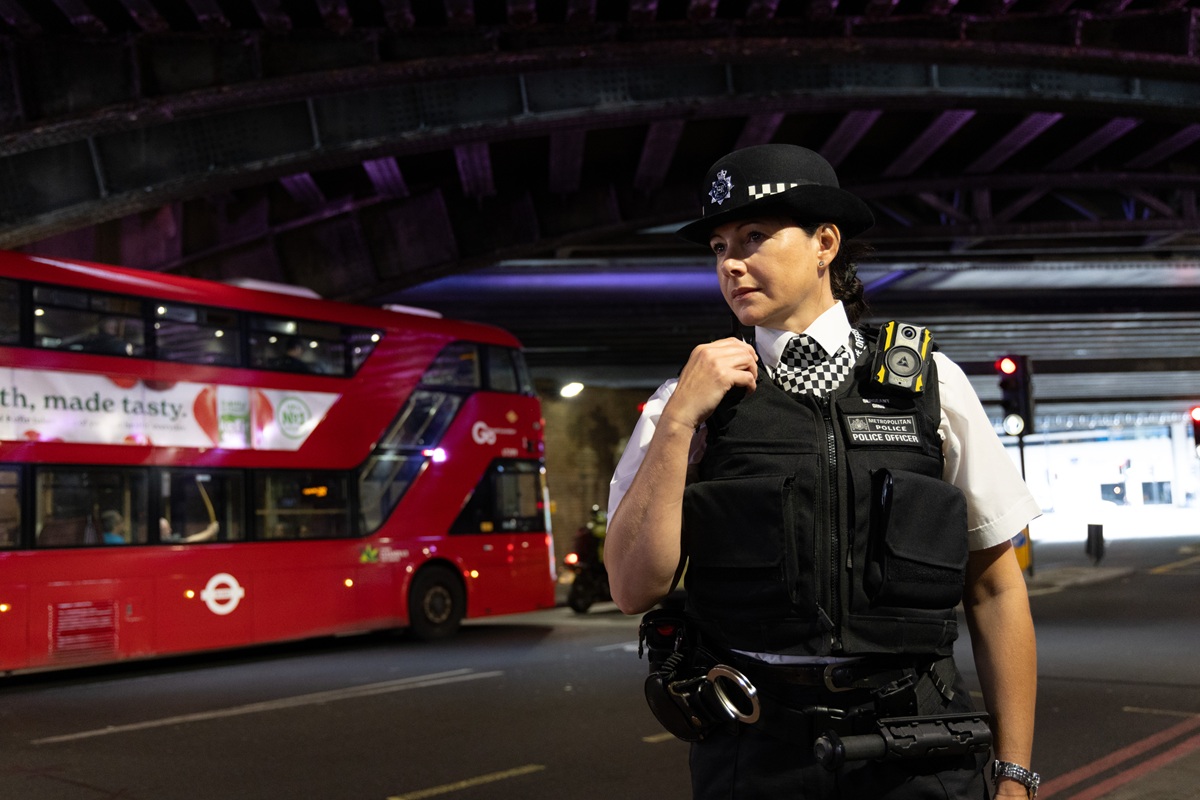
Whatever career path you decide on, you’ll get to see a new side of London, learn new skills and discover new strengths in yourself every day. The different roles we offer include:
- Neighbourhood policing
- Policing major events and demonstrations
- Carrying a firearm
- Specialist and major investigations, such as homicide and major crime
- Dog handlers
- Mounted officers
- Patrolling the River Thames on and below the water
- Counter Terrorism
Training
Your first week is a three day introduction to the Met with the remainder spent at your university.
You then complete 16 weeks initial learning at your university, covering:
- policing, the law and police powers
- protection, vulnerability and public protection
- policing communities, response policing and investigating crime
- police leadership, coaching and mentoring
- officer safety training
- emergency life support
- safeguarding
- crime investigation and operational policing skills
The next eight weeks you will spend working in a police team, based on a London borough. This will be alongside a dedicated experienced police officer acting as your ‘tutor constable’. This is called street duties, and is where you can put into practice what you have been taught in the classroom.
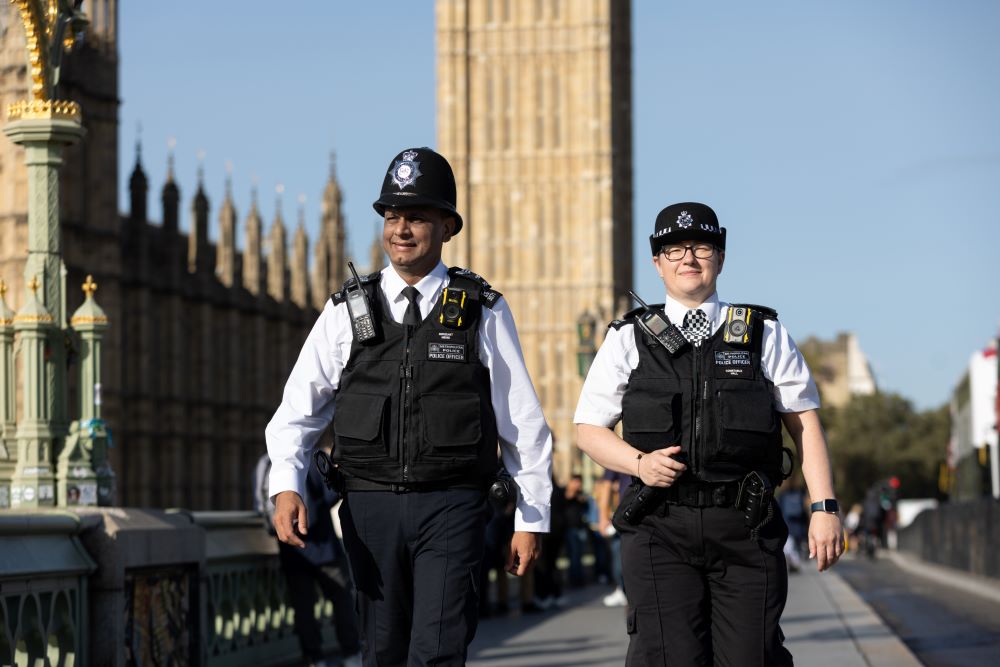
You’ll return to your university at two different times for a three-week period each time. And in year 3, you’ll get the chance to undertake research in an area of policing you’re interested in. You’ll then present your research through an academic poster and short briefing.
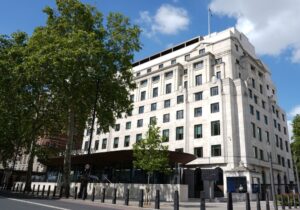
You’ll spend building on everything you learn, work in a number of different policing roles, from responding to emergency calls from the public to policing London’s neighbourhoods and working directly with communities. Each role will help you advance your skill set, enhance your knowledge and help you gain valuable experience. You’ll also be required to complete operational and academic assessments from time to time, including exams, essays and presentations.
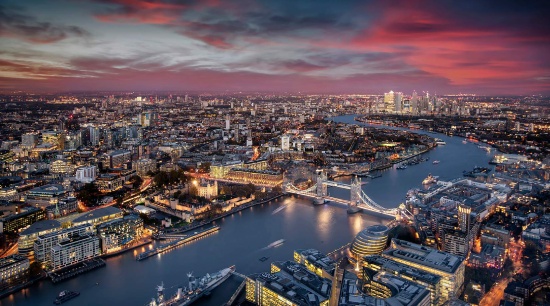
How can you become a Police Constable?
It can take up to six months for the entire process to be completed, but the career that you will be building is worth the wait.
It will not only change your life but also the lives of Londoners everywhere.
-
Step 1: Online registration form and application
First, you’ll need to submit an online registration form and an application form to make sure you pass our basic eligibility criteria.
A basic security check will be conducted, which takes around seven days.
-
Step 2: Behavioural styles questionnaire
This is a short, online assessment designed to check if you have the key behaviours and values we look for in our police constables.
We usually get back to you after around two weeks.
-
Step 3: Your online assessment
The online assessment is made up of three exercises:
- Competency-based interview: use examples from your work and personal life to answer a series of questions.
- Written assessment: complete an urgent written task whilst assuming the role of a police constable.
- Briefing exercise: read the material and answer questions based on what you have read as if you were a police constable.
You should complete this stage within about three weeks of Step 1. You can expect your results within three weeks of completing the assessment.
-
Step 4: Face to face Met Assessment
We’ll invite you to our Met recruitment centre in South London for an interview focused on our values. You’ll also complete a medical and fitness test in this stage.
You’ll usually attend this within about three weeks of receiving your online assessment results. You can expect your results within four to eight weeks, depending on personal circumstances.
-
Step 5: Pre-employment checks and vetting
These checks are there to make sure we are recruiting police officers who meet our standards of behaviour and share our values. The length of time this takes can vary. On average, it takes about two months.
You can find out more on the vetting process.
-
Step 6: Offer of employment
If you’re successful, we’ll make you a formal offer of employment and discuss the best date for you to join.
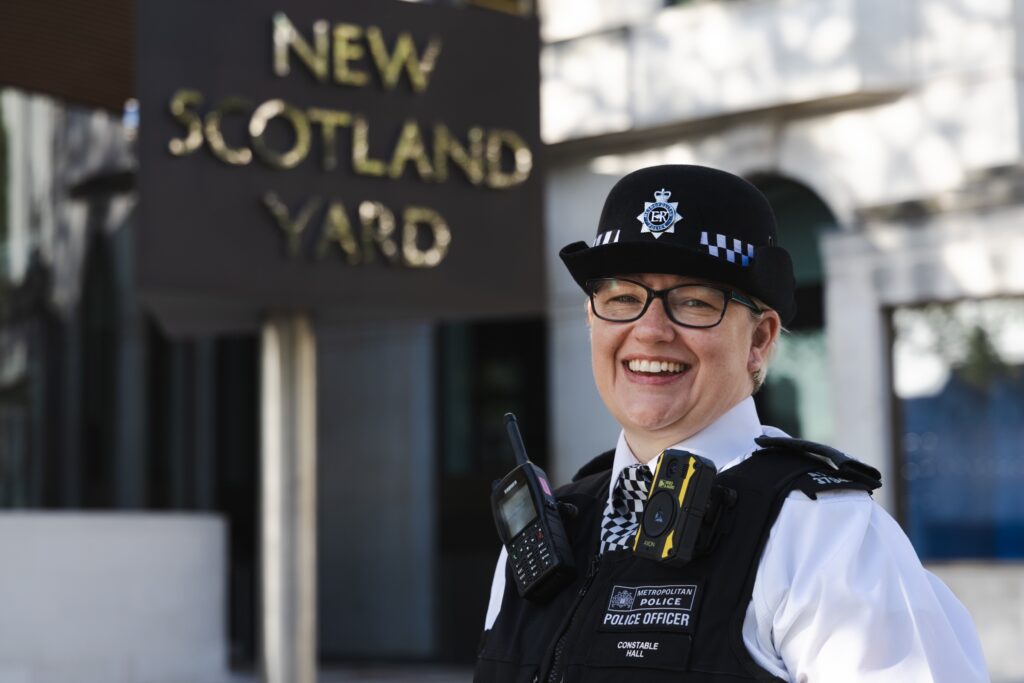
Be part of this change. Our careers are open to members of every community.

